The politics of India takes place within the framework of the country's constitution. India is a federal parliamentary democratic republic in which the President of India is the head of state and the Prime Minister of India is the head of government. India follows the dual polity system, i.e. a double government that consists of the central authority at the centre and states at the periphery. The constitution defines the organisational powers and limitations of both central and state governments, and it is well-recognised, rigid and considered supreme; i.e. the laws of the nation must conform to it.

The Canadian Alliance, formally the Canadian Reform Conservative Alliance, was a conservative and right-wing populist federal political party in Canada that existed from 2000 to 2003. The party was the successor to the Reform Party of Canada and inherited its position as the Official Opposition in the House of Commons of Canada and held it throughout its existence. The party supported policies that were both fiscally and socially conservative, seeking reduced government spending on social programs and reductions in taxation.
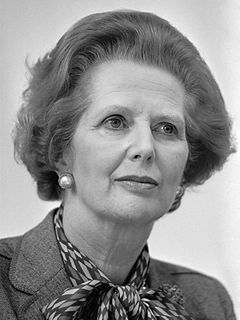
The 1987 United Kingdom general election was held on Thursday 11 June 1987, to elect 650 members to the House of Commons of the United Kingdom. The election was the third consecutive general election victory for the Conservative Party, and second landslide under the leadership of Margaret Thatcher, who became the first Prime Minister since the Earl of Liverpool in 1820 to lead a party into three successive electoral victories.
The National Democratic Alliance (NDA) is a coalition of Central right wing political parties political parties in India. At the time of its formation in 1998, it was led by the Bharatiya Janata Party (BJP) and had 13 constituent parties. Its chairman was former Prime Minister Atal Bihari Vajpayee. Also representing the alliance are L. K. Advani, former Deputy Prime Minister, who is the acting chairman of the Alliance, Narendra Modi, current Prime Minister and the Leader of the House in Lok Sabha; and Arun Jaitley, Leader of the House in Rajya Sabha and Finance minister. The coalition ruled from 1998 to 2004. The alliance returned to power in the 2014 General election with a combined vote share of 38.5%. Its leader, Narendra Modi, was sworn in as Prime Minister of India on 26 May 2014.

The 1895 United Kingdom general election was held between 13 July and 7 August 1895. It was won by the Conservatives led by Lord Salisbury who formed an alliance with the Liberal Unionist Party and had a large majority over the Liberals, led by Lord Rosebery. The Irish Parliamentary Party was split at this time, the majority of its MPs following John Dillon whilst a rump followed John Redmond.
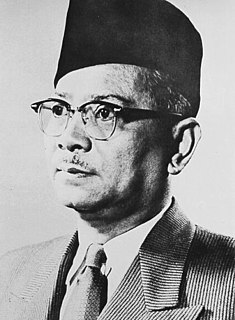
A general election was held on Saturday, 10 May 1969 for members of the 3rd Parliament of Malaysia, although voting was postponed until between 6 June and 4 July 1970 in Sabah and Sarawak. This election marked the first parliamentary election held in Sabah and Sarawak after the formation of Malaysia in 1963.
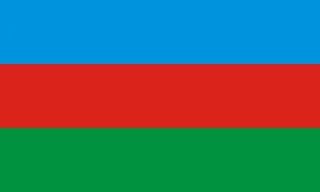
The Lok Janshakti Party (LJP) is a state political party in the state of Bihar, India. It is led by Ram Vilas Paswan. The party was formed in 2000 when Paswan split from Janata Dal (United). The party has considerable following amongst Dalits in Bihar. Currently the party is a member of the National Democratic Alliance.

The National Assembly is the lower house of the Parliament of South Africa, located in Cape Town, Western Cape Province. It consists of four hundred members who are elected every five years using a party-list proportional representation system where half of the members are elected proportionally from 9 provincial lists and the remaining half from national lists so as to restore proportionality.

Elections in Mauritius gives information on elections and election results in Mauritius. Since 1967, Mauritius has experienced 11 free and fair democratic general elections to choose a government.
In the context of local authorities in the United Kingdom, the term no overall control refers to a situation in which no single political group achieves a majority of seats; and is analogous to a hung parliament. Of the 310 councils who had members up for election in the 2007 local elections, 85 resulted in a NOC administration.

General elections were held in Denmark on 13 November 2007. The election allowed prime minister Anders Fogh Rasmussen to continue for a third term in a coalition government consisting of the Liberals and the Conservative People's Party with parliamentary support from the Danish People's Party.

India held general elections to the 7th Lok Sabha in January 1980. The Janata Party alliance came into power after the elections to the 6th Lok Sabha held in 1977, riding the public anger against the Congress and the Emergency but its position was weak. The loose coalition barely held on to a majority with only 295 seats in the Lok Sabha and never quite had a firm grip on power.

The Nepal Communist Party (NCP) is the ruling political party in Nepal and is the largest communist party in South Asia and the third largest in Asia. It was founded on the 17th of May 2018, from the unification of two leftist parties, Communist Party of Nepal and Communist Party of Nepal. The unification was completed by the Party Unification Coordination Committee, after 8 months of planning. The two predecessor parties subsequently dissolved, making way for the new united party. The party retains the electoral symbol of the CPN, the sun. The party is the largest political party in the House of Representatives, National Assembly and in all seven provincial assemblies. Khadga Prasad Oli, the Prime Minister of Nepal since 15 February 2018, is co-chairman of the party along with Pushpa Kamal Dahal.
The politics of the Western Cape are more complex than in most other provinces of South Africa, because, unlike the other provinces, the African National Congress (ANC) does not dominate the political landscape.

Elections in Tamil Nadu are conducted every five years to elect the State assembly and its share of members to the Lok Sabha. There are 234 assembly constituencies and 39 Lok Sabha constituencies. The state has conducted 15 assembly elections and 16 Lok Sabha elections since independence.

General elections were held in the Kingdom of Denmark on 18 June 2015 to elect the 179 members of the Folketing. 175 members were elected in the Denmark proper, two in the Faroe Islands and two in Greenland. Although the ruling Social Democrats remained the largest party in the Folketing and increased the number of seats they held, the opposition Venstre party was able to form a minority government headed by Lars Løkke Rasmussen with the support of the Danish People's Party, the Liberal Alliance and the Conservative People's Party.
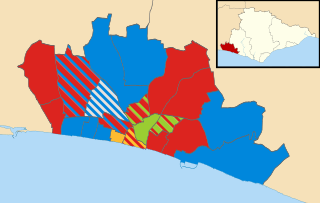
Elections to Brighton and Hove City Council on the south coast of England were held on 1 May 2003. The whole council was up for election and all 54 councillors were elected from 21 wards. Labour lost control of the council and no party had majority of seats so the council came under no overall control.
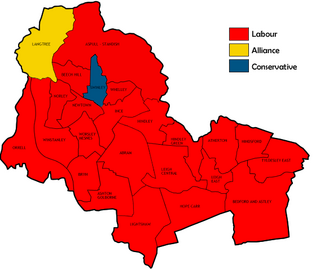
Elections to the Wigan council were held on Thursday, 8 May 1986, with one third of the seats scheduled for re-election. Since the previous election three by-elections had taken place, with Labour gaining the seat being fought in Orrell from the Conservatives as well as holding their seats in Bedford-Astley and Beech Hill. The election seen fewer contestants than any previous election since the council's creation in 1973, with a record of four seats unchallenged. Even amongst those contested there were no minor parties represented, the fewest Alliance candidates since the 1980 election and a record low of Conservative contenders at sixteen. The results were similarly record-breaking as Labour won twenty two seats, with the Conservative and Alliance majorities in their respective heartland wards - and only holds - of Swinley and Langtree reduced to slender majorities. Labour won a high of 65% share of the vote, conversely the Conservatives share fell to a low of 13.1%, with their actual vote dropping into four figures for the first time. Overall turnout rose from the preceding year's underwhelming figure of 29.2%, to a more commonplace 35.8%.
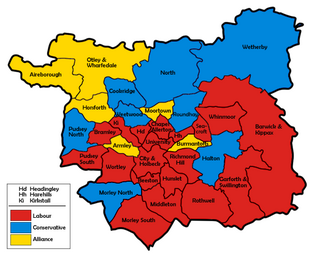
The Leeds City Council elections were held on Thursday, 7 May 1987, with one third of the council and a vacancy in Wetherby to be elected. Prior to the election, the Alliance had gained the Aireborough seat from the Conservatives in a by-election.
Elections for the London Borough of Merton were held on 6 May 1982 to elect members of Merton London Borough Council in London, England. This was on the same day as other local elections in England and Scotland.




















